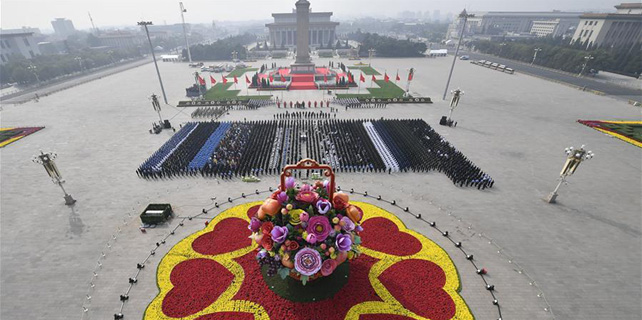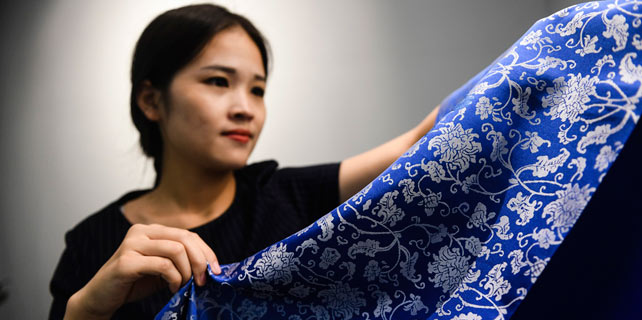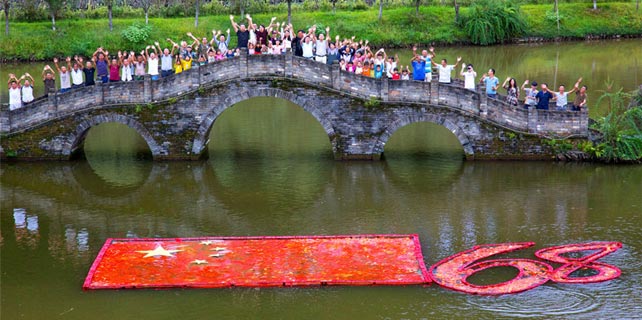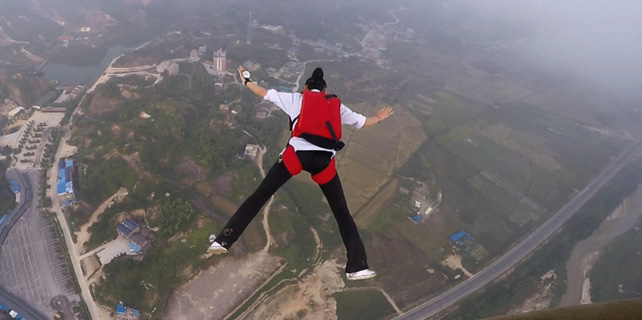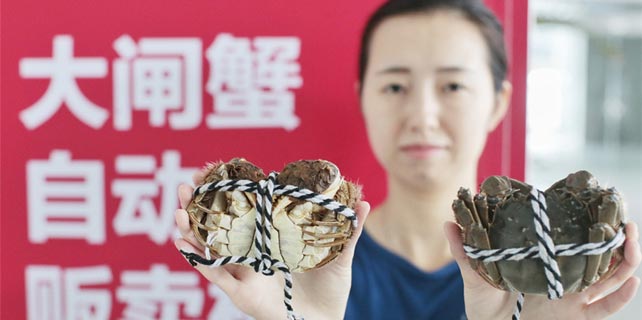Chinese general honored in DC
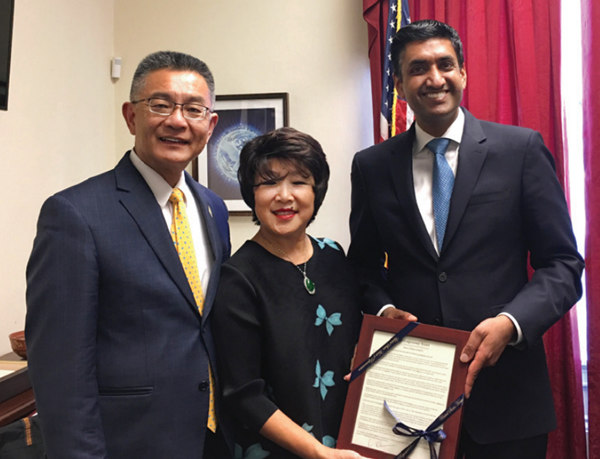 |
|
Congressman Ro Khanna (right) presents the Congressional Record to California Assemblyman Kansen Chu (left), grandnephew of General Sun Li-jen, and Chu's wife Daisy (center) on Thursday on Capitol Hill. PROVIDED TO CHINA DAILY |
Chinese war hero and US ally Sun Li-jen, known as "the ever-victorious general" for his feats fighting the Japanese in Burma in World War II, has been recognized for the first time on the floor of the US Congress.
Congressman Ro Khanna, representing California's 17th District, honored General Sun on Thursday. He encouraged Congress to remember Sun's contributions and legacy and their importance to people of Chinese and Chinese-American ancestry.
Sun was a friend of American generals MacArthur and Eisenhower. He was awarded the Legion of Merit, a US military award for extraordinarily meritorious conduct, by President Franklin D. Roosevelt in recognition of his victory in the Battle of Yenangyaung, Burma, in 1942.
With unanimous consent, the report recommending Sun for the Legion of Merit and a letter from the Virginia Military Institute, his alma mater, were entered into the US Congressional Record.
"Under most trying conditions General Sun displayed high qualities of leadership. The First Burma Division of the British Force at Yenangyaung was extricated by the attack of the 38th Division and saved from annihilation. General Sun held his unit together at all times during the retreat and brought it ready for combat to India. His example of courage and leadership reflect great credit on Allied Arms," the US War Department wrote in the report.
Khanna said Sun's life demonstrated that China was an indispensible ally of the US in World War II along with Britain and Russia. It's also the first time that China's role as an ally in World War II has been recognized on the House floor, he said.
"The history needs to be told, how China was an ally of the United States," Khanna told China Daily on the phone. "Many Americans don't know this history. They know Britain and Russia were allies, but they forget millions of Chinese were sacrificed in fighting the Imperial Japanese Army.
"I think once we make this known, it will help form a basis for friendship between the United States and China, and building a better world," he said.
Born in Anhui province in 1900, Sun graduated from Purdue University in 1924 with a degree in civil engineering. Believing he could be more useful as a soldier than as an engineer, he went on to attend the Virginia Military Institute.
When he returned to China, he advanced to the rank of colonel. In one of the earliest battles of World War II, he led troops in defense of Shanghai and was wounded while leading his own men to safety. After recovering from his injuries, he established a military training camp in southern China. The men at the camp were trained in both Eastern and Western military strategy.
Sun was later sent to Burma. During the Battle of Yenangyaung, he led a Chinese regiment through difficult terrain to relieve 7,000 British forces trapped by the Japanese. For his valor, he received the Commander of the British Empire medal.
During this battle, Sun was also given command of a small group of soldiers from the British Second Royal Tanks, making him the first Chinese officer ever to command British troops.
What people of today can also learn from Sun is that he valued diversity. "He found greater strength as a leader by combining Eastern and Western ideas. He led soldiers with different ethnicities and religions. His accomplishments demonstrate that we are better when we embrace diversity," said Khanna.
Descendants of Sun were also in attendance on Capitol Hill on Thursday, including his daughter Sun Tai-ping and a grandnephew, California Assemblyman Kansen Chu.
"The textbooks in the US have paid less attention to the Asian theaters, such as the CBI (China-Burma-India) Theater during World War II," said Chu. "I hope the congressional recognition of General Sun can help remind people both in the US and China of the friendship that existed between the Americans and the Chinese as their countries joined forces during the war."
liazhu@chinadailyusa.com




